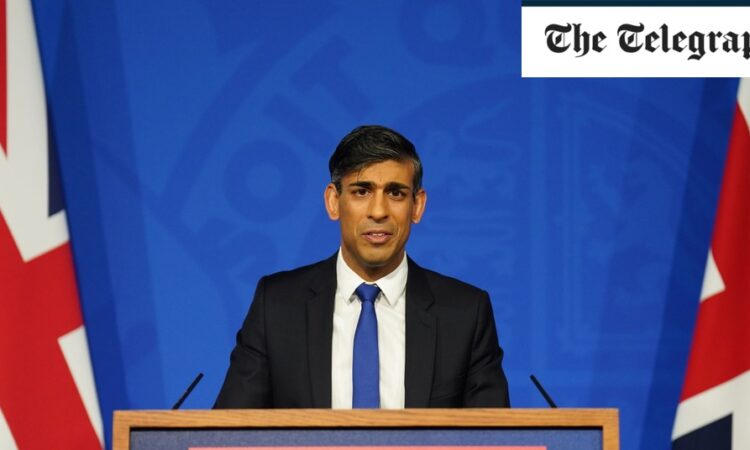
The UK Purchasing Managers’ Index, based on surveys of business owners, hit 52.9 in January – with readings above 50 indicating growth. That’s the highest since May, reflecting rising household and business confidence as commercial borrowing costs have eased.
Britain’s service sector PMI also rose to 54.3 last month, up from 53.4 in December, an eight-month high. And while the manufacturing PMI remains sluggish, rising only to 47.0 in January, from 46.2 the month before, business sentiment across the sector just hit a four-month high as order books have grown, despite ongoing supply-chain challenges.
Yet the UK economy overall is still lacklustre – with NIESR estimating a trend growth rate of just 0.9pc, far less than 2.3pc during the 10 years before the 2009 financial crisis and 1.2pc in the decade before the pandemic.
Mainstream economists – not least in the Treasury and Office for Budget Responsibility (OBR) – have long maintained that high immigration promotes economic and fiscal success. But the consensus that a constant influx of younger workers helps to drive growth and pay for the UK’s ageing society is now starting to crack.
There are almost 10m working-age people neither working nor looking for work – up sharply since the pandemic. Senior OBR economist Professor David Miles last week argued that welfare reforms pushing more people back to work would be “unambiguously beneficial”.
At the same time, it is “much less clear persistently high levels of net migration…can generate sustained fiscal improvements”, argues Miles, formerly of the Bank of England’s Monetary Policy Committee. He also points to “strong reasons” why high immigration puts public services and broader infrastructure under pressure.
While entirely obvious to most of us, this is a big admission from someone at the heart of the UK’s often other-worldly policy-making establishment. And not a moment too soon.
Coming from immigrant stock myself, I instinctively back the idea Britain has benefitted over many years from the efforts of new arrivals. But the pace of immigration is now so high that even if GDP growth quickens, GDP per head – a far more accurate measure of living standards – still lags.






